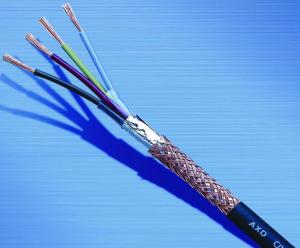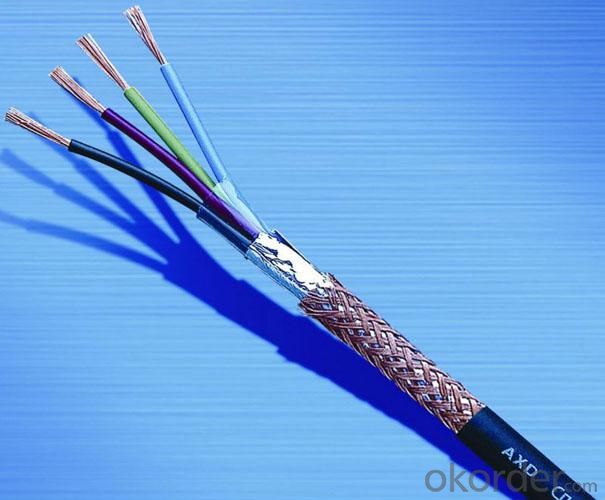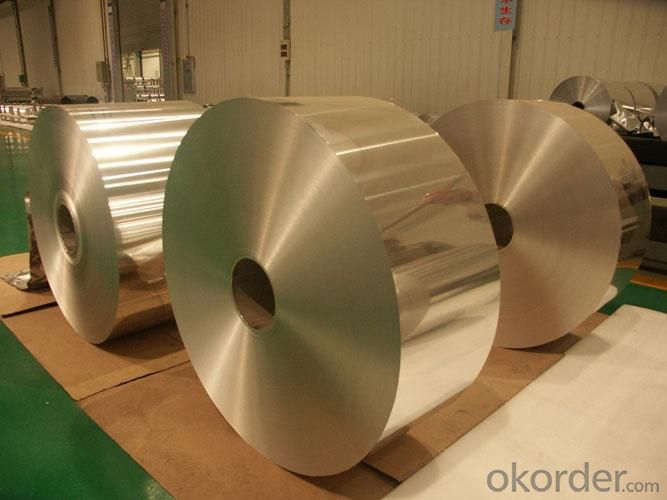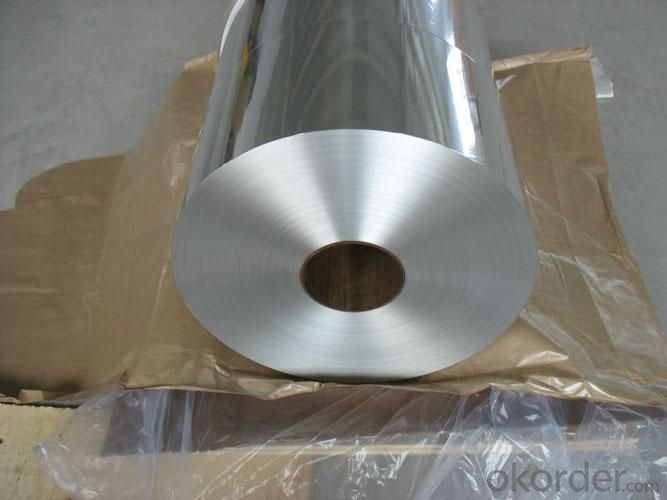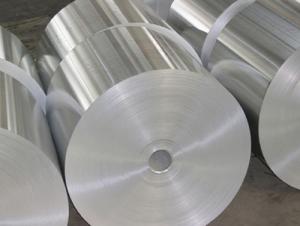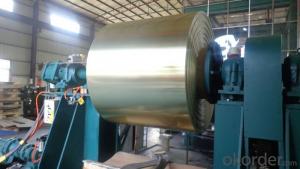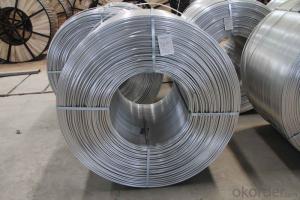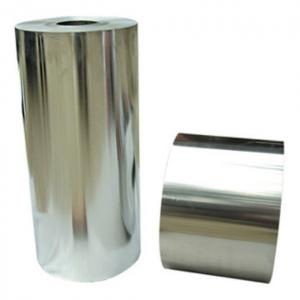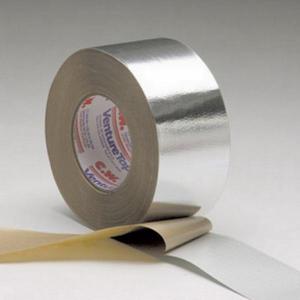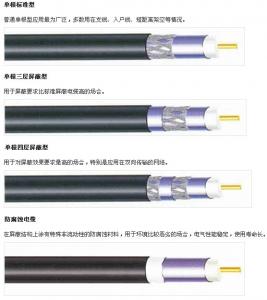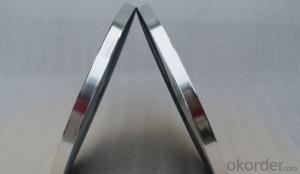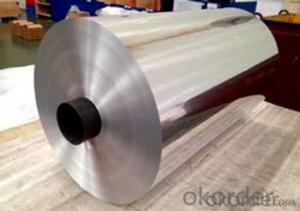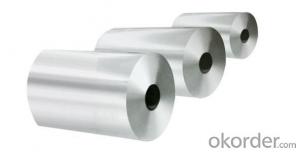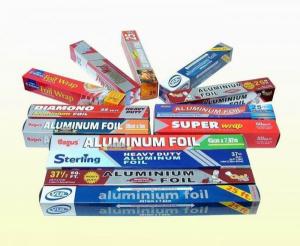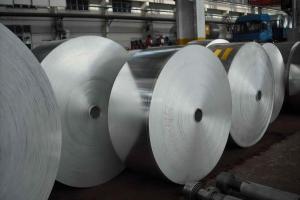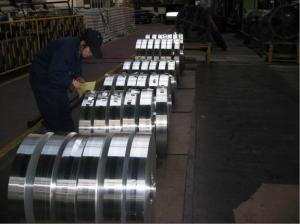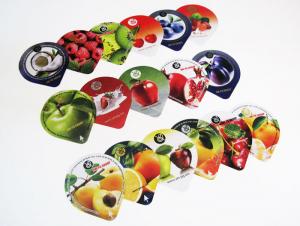Aluminum Cable Foil
- Loading Port:
- China Main Port
- Payment Terms:
- TT or L/C
- Min Order Qty:
- 5M.T m.t.
- Supply Capability:
- 2000 Tons Per Month m.t./month
OKorder Service Pledge
Quality Product, Order Online Tracking, Timely Delivery
OKorder Financial Service
Credit Rating, Credit Services, Credit Purchasing
You Might Also Like
Quick details of Cable Foil
Application: | Cable Wrapping |
Alloy: | 1145/1200/1235/ 1100/ 1050 /8011 |
Temper: | O |
Thickness& Tolerance: | 0.10mm-0.20mm (±6%) |
Width& Tolerance: | 200mm-1650mm (±1 mm) |
Mechanical Properties: | Tensile Strength(U.T.S)≥60Mpa, Elongation≥10% |
Standard: | GB/T3198 / ASTM-B209 / EN546 |
Usage/Application of Cable Foil
Cable wrapping for insulation
Packaging & Delivery of Cable Foil
Packing: seaworthy wooden box with pallet
Delivery: to be loaded by 1 x 20 feet container
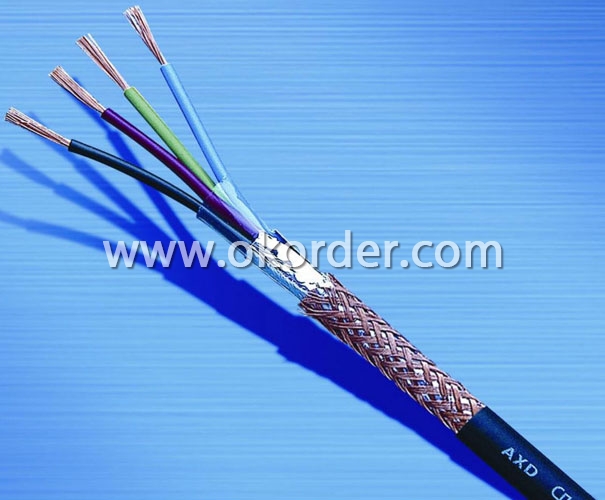
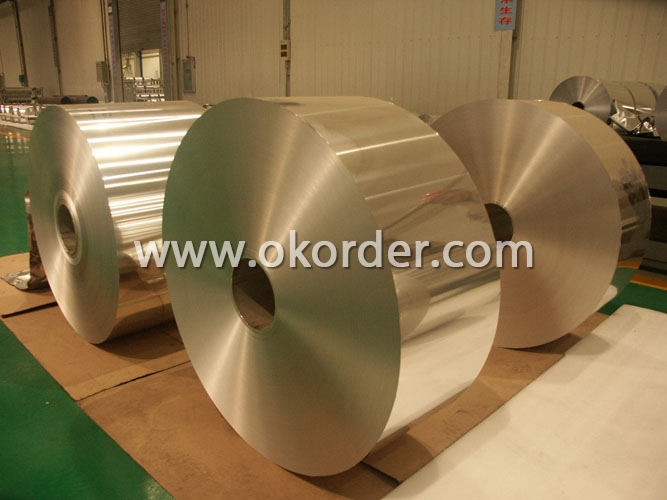
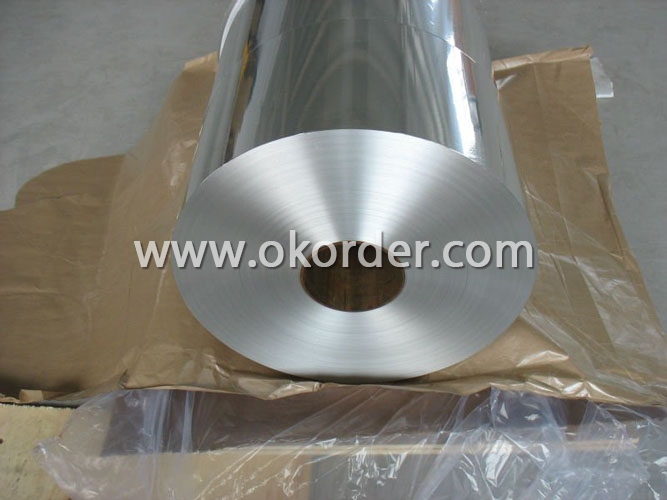
- Q: What are the safety standards for aluminum products used in everyday life?
- <p>Yes, there are safety standards for using aluminum products in daily life. These standards ensure the safety and quality of aluminum products. They cover aspects such as material composition, manufacturing processes, and product performance. The standards vary by country and product type, but they generally aim to prevent health risks associated with aluminum exposure, such as toxicity and contamination. Compliance with these standards is crucial to protect consumers and ensure the longevity and reliability of aluminum products.</p>
- Q: Is the accumulation of aluminum in the body harmful to health?
- <p>Aluminum buildup in the body has been a subject of concern, particularly in relation to Alzheimer's disease. While aluminum is naturally present in the environment and is used in various products, including food packaging and cookware, there is no strong scientific evidence to support the claim that aluminum exposure or accumulation causes health problems in humans. The World Health Organization and other health authorities have stated that aluminum intake from food and drinking water is not a significant health risk for the general population. However, it is always recommended to follow good hygiene practices and use cookware that is known to be safe for food preparation to minimize any potential risks.</p>
- Q: Explain the distinction between primary and secondary aluminum recycling, including the processes involved in each.
- <p>Primary aluminum recycling involves the production of aluminum from bauxite ore through a process called electrolysis. This process is energy-intensive and requires significant resources. Secondary aluminum recycling, on the other hand, involves the recycling of aluminum products back into new aluminum products. This process is much more energy-efficient as it involves melting and recasting the aluminum, which requires only 5% of the energy needed for primary production. Secondary recycling is more sustainable and environmentally friendly due to its lower energy consumption and reduced waste.</p>
- Q: Explain how the strength of aluminum is affected by temperature changes.
- <p>The strength of aluminum decreases with increasing temperature. As temperature rises, aluminum undergoes thermal expansion, which can lead to a reduction in its yield strength and tensile strength. This is because the increased thermal energy causes the aluminum atoms to vibrate more, weakening the metallic bonds. At very high temperatures, aluminum can become ductile and may even lose its structural integrity. Conversely, at very low temperatures, aluminum can become brittle, which also affects its strength negatively. Therefore, the optimal temperature for maintaining the strength of aluminum is typically within its normal operating range.</p>
- Q: This question asks for the current cost of aluminum.
- <p>The cost of aluminum fluctuates based on market conditions and can vary by region. As of my last update, the price of aluminum was around $2,500 per metric ton, but this is subject to change. For the most accurate and up-to-date pricing, it's best to check with a commodity exchange or a reliable financial news source. Prices can be influenced by supply and demand, economic indicators, and geopolitical factors.</p>
- Q: What are the differences between Aluminum Oxide and Aluminum Alloy in terms of their properties and applications?
- <p>Aluminum Oxide and Aluminum Alloy are distinct materials with different properties and uses. Aluminum Oxide, also known as alumina, is a ceramic material with a high melting point, hardness, and electrical insulation properties. It's used in abrasives, electronics, and as a refractory material. In contrast, Aluminum Alloys are composites of aluminum with other elements like copper, magnesium, or silicon, which enhance their strength, corrosion resistance, and malleability. They are widely used in construction, automotive, aerospace, and packaging due to their lightweight and durability.</p>
- Q: What are the various applications and benefits of using aluminum in the automotive industry?
- <p>Aluminum is widely used in automobiles for its lightweight properties, which improve fuel efficiency and reduce emissions. It's used in engine parts, such as pistons and cylinder heads, to decrease weight and increase performance. Aluminum is also used in body panels, wheels, and suspension components, enhancing vehicle handling and reducing unsprung weight. Additionally, aluminum's corrosion resistance makes it ideal for exterior parts, and its recyclability aligns with environmental sustainability efforts in the automotive industry.</p>
- Q: This question asks about the process of manufacturing aluminum foil.
- <p>Aluminum foil is made through a process that begins with the extraction of aluminum from its ore, bauxite. The bauxite is first refined to produce aluminum oxide, which is then reduced to aluminum metal using the Hall-H茅roult process. The aluminum is then melted and cast into large ingots. These ingots are heated and rolled into thin sheets in a series of passes through large rolling mills. As the metal cools, it hardens, and the thickness of the sheet is progressively reduced. The final thin sheets are then cut and packaged as aluminum foil. This process requires precision and control to achieve the desired thickness and quality of the foil.</p>
- Q: Is it safe and common to use aluminum in food packaging?
- <p>Yes, aluminum is commonly used in food packaging due to its lightweight, durability, and excellent barrier properties against light, oxygen, and moisture. It is often used in the form of aluminum foil and aluminum-coated films or laminates to protect food and extend its shelf life. However, there are concerns about the potential health risks of aluminum exposure, and it's important to note that regulations and guidelines exist to ensure that aluminum levels in food packaging are safe for consumers.</p>
- Q: What are the primary applications and benefits of aluminum in various industrial sectors?
- <p>Aluminum is extensively used in the industry due to its lightweight, high strength, and excellent corrosion resistance. It is a key material in the aerospace industry for aircraft construction to reduce weight and improve fuel efficiency. In the automotive sector, aluminum is used for engine parts and body panels to enhance fuel economy and performance. The construction industry utilizes aluminum for window frames, roofing, and structural components due to its durability and low maintenance. Aluminum is also prevalent in the packaging industry for food and beverage cans, and in electrical applications for wiring and transformers due to its high conductivity. Its recyclability makes it an environmentally friendly choice, further enhancing its industrial applications.</p>
Send your message to us
Aluminum Cable Foil
- Loading Port:
- China Main Port
- Payment Terms:
- TT or L/C
- Min Order Qty:
- 5M.T m.t.
- Supply Capability:
- 2000 Tons Per Month m.t./month
OKorder Service Pledge
Quality Product, Order Online Tracking, Timely Delivery
OKorder Financial Service
Credit Rating, Credit Services, Credit Purchasing
Similar products
Hot products
Hot Searches
